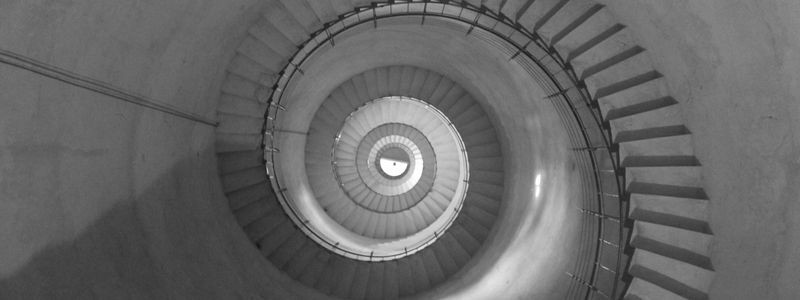Free home visits
with a local audiologist

Head of Online Medical Content

Audiology Expert at Hearing Aid UK

What is dizziness? | Causes of dizziness | Dizziness and ringing in the ears | What is Meniere's disease? | Conclusion
Dizziness and hearing loss can coexist due to shared inner ear structures. Conditions like Meniere's disease or vestibular schwannoma may cause both symptoms. Inner ear infections or inflammation can also lead to temporary dizziness and hearing loss. Prompt medical evaluation is vital to determine the underlying cause and appropriate treatment.
As well as looking into the reasons, causes, and treatments - we will be focusing on the inner ear, hearing loss, and dizziness in this article.
Hearing loss and dizziness often go hand in hand, indicating potential underlying health issues. Hearing loss refers to a reduced ability to perceive sounds, either partially or completely. It can stem from various causes, such as ageing, exposure to loud noises, infections, or genetic factors.
Dizziness and hearing loss are two separate medical conditions, but they can sometimes be related. Dizziness is a common symptom of hearing loss, especially in people with severe or profound hearing loss. It can also be a side effect of certain medications used to treat hearing loss.
Dizziness is a common reason people see their GP. If you are feeling dizzy, it is important that you seek medical help quickly to be evaluated. Dizziness can be due to various conditions and illnesses but is usually caused when the connection between the eyes, inner ear, and the brain is damaged.
Although dizziness can take many forms, it is always when there is a disturbance to your sense of balance. It can be caused by a number of factors, including inner ear disorders, vestibular disorders, cardiovascular problems, and certain medications.
The symptoms of dizziness can be unsteadiness, disorientation, spinning, nausea, and feeling light-headed. But how and why does this happen?
Inside your ears, there are three small semi-circular canals containing both fluid and crystals - known as endolymphs and otoliths. These crystals move and float in the fluid mirroring your body's angular position.
There are two other semi-circular structures called the utricle and saccule, which recognise horizontal and vertical movements of your body. Combined, are your balance organ that assists your body in understanding when you are going up, down, left, right, forward, and backwards, as well as touch and sight.
Your balance organ synchronises with your muscles, joints, and eyesight to give you a sense of balance and orientation within your surroundings. This is called the vestibular system. This system relies on the maze of tissue and bone in the inner ear, which is where the cochlea and hearing nerve are located.
Dizziness is not a disease but more a symptom of a much bigger problem. There are many triggers for dizziness such as side effects of medication, a bumpy car journey, and motion sickness. There are also different variations of dizziness. These are:
Inner ear dizziness is common, as dizziness is generally caused by a problem with your inner ear, problematic blood circulation, or a pressure of fluid or nerves in the inner ear. For example, after a cold, your ears can become inflamed or swollen This can result in bouts of dizziness.
Vertigo tinnitus and hearing loss are suggestive of long periods of dizziness. Various disorders affect the inner ears which can result in tinnitus (or ringing of the ears) as well as dizziness. This could also be Meniere's disease and, in some rare cases, acoustic neuromas.
This can feel like a spinning sensation, commonly known as vertigo, together with light-headedness which may persist or come and go. It may feel stronger when your head moves or when there are sudden movements in your body. There may also be nausea, however Benign paroxysmal positional vertigo (or BPPV) has no other symptoms other than dizziness.

What are the causes of dizziness and hearing loss? Balance and hearing are linked, as they share a pathway to the brain, and this is why there are many medical conditions that contribute to the causes of dizziness and hearing loss. Such as severe allergic reactions, side effects of medication, circulatory conditions, and viral and bacterial infections of the inner ear.
Your ears oversee more than just hearing - they hold your vestibular system. This is why hearing loss affects your ability to hear and understand speech, but it can also affect your balance and cause balance disorders.
If you are experiencing hearing loss combined with any of these symptoms, you must seek medical help from your GP. If, when evaluated, you need hearing support they will refer you to an audiologist for a full hearing test and future solutions.
Sometimes hearing loss and balance or dizziness aren't connected, and you might have Meniere's disease. This is an ear condition that affects the vestibular system and the inner ear. The inner ear and the Corti (part of the cochlea) fill with fluid and become swollen.
This then leads to dizziness, hearing loss, and a feeling of fullness in your ear. The symptoms, like hearing loss, can range from mild to severe.
If you are experiencing dizziness and hearing loss, it is important to consult with a healthcare professional first to determine the cause and appropriate treatment. An audiologist can support you in diagnosing the cause of your hearing loss and provide effective solutions to help you feel and hear better again.
Maintaining good hearing health will improve your overall mental, health and well-being in the future. In some cases, treating the underlying cause of the dizziness, such as an inner ear disorder or hearing loss, can also improve the dizziness. In other cases, treatment may include medications or balance therapy to manage the dizziness.
It is also important to protect your hearing and avoid loud noises whenever possible, as hearing loss can lead to dizziness and other balance issues. Wearing earplugs or earmuffs when exposed to loud noises, and avoiding listening to music or other sounds at high volumes, can help to prevent hearing loss and the associated dizziness.
If you are experiencing dizziness and hearing loss, your first point of call is your local GP who will look at your symptoms and diagnose any hearing loss that needs to be treated.
We advise that you regularly visit an audiologist even if it is just to check if your hearing has not deteriorated, which can often lead to temporary dizziness and vertigo.
If you think you might have hearing loss or your hearing has worsened and need some impartial advice on hearing healthcare and hearing aids - please call us free on 0800 567 7621
 I have difficulty hearing in noisy places
I have difficulty hearing in noisy places  High-Pitched Sounds Like Birdsong Are Fading. Do I Have Hearing Loss?
High-Pitched Sounds Like Birdsong Are Fading. Do I Have Hearing Loss?  Asking people to repeat themselves frequently. Do I have hearing loss?
Asking people to repeat themselves frequently. Do I have hearing loss? Do not spend hundreds of pounds without getting a second opinion from us.
 Not only are the prices great, but the service is fantastic! Many thanks to your team.
Not only are the prices great, but the service is fantastic! Many thanks to your team.If you are looking at this page then it is likely that an audiologist has suggested that you purchase this particular hearing aid, so is this the best model for you?
In general, any audiologist will always recommend to you the model that best suits your needs. Here is a useful checklist to make sure that is the case.
If in doubt, feel free to give us a call. That's what we're here for. In the meantime, read all about our review of the best hearing aids for 2025 here
If you have significant hearing loss in both ears, you should be wearing two hearing aids. Here are the audiological reasons why:
Localisation: The brain decodes information from both ears and compares and contrasts them. By analysing the minuscule time delays as well as the difference in the loudness of each sound reaching the ears, the person is able to accurately locate a sound source. Simply put, if you have better hearing on one side than the other, you can't accurately tell what direction sounds are coming from.
Less amplification is required: A phenomenon known as “binaural summation” means that the hearing aids can be set at a lower and more natural volume setting than if you wore only one hearing aid.
Head shadow effect: High frequencies, the part of your hearing that gives clarity and meaning to speech sounds, cannot bend around your head. Only low frequencies can. Therefore if someone is talking on your unaided side you are likely to hear that they are speaking, but be unable to tell what they have said.
Noise reduction: The brain has its own built-in noise reduction which is only really effective when it is receiving information from both ears. If only one ear is aided, even with the best hearing aid in the world, it will be difficult for you to hear in background noise as your brain is trying to retain all of the sounds (including background noise) rather than filtering it out.
Sound quality: We are designed to hear in stereo. Only hearing from one side sounds a lot less natural to us.
Fancy some further reading on this topic? You can read about why two hearing aids are better than one in our article, hearing aids for both ears, here
For most people, the main benefit of a rechargeable hearing aid is simple convenience. We are used to plugging in our phones and other devices overnight for them to charge up. Here are some other pros and cons:
For anybody with poor dexterity or issues with their fingers, having a rechargeable aid makes a huge difference as normal hearing aid batteries are quite small and some people find them fiddly to change.
One downside is that if you forget to charge your hearing aid, then it is a problem that can't be instantly fixed. For most a 30-minute charge will get you at least two or three hours of hearing, but if you are the type of person who is likely to forget to plug them in regularly then you're probably better off with standard batteries.
Rechargeable aids are also a little bit bigger and are only available in Behind the Ear models.
Finally, just like with a mobile phone, the amount of charge you get on day one is not going to be the same as you get a few years down the line. Be sure to ask what the policy is with the manufacturer warranty when it comes to replacing the battery.
Looking for more information on rechargeable hearing aids? Read our dedicated page on the topic here
For most people, the answer is yes. But it's never that simple.
The majority of hearing problems affect the high frequencies a lot more than the low ones. Therefore open fitting hearing aids sound a lot more natural and ones that block your ears up can make your own voice sound like you are talking with your head in a bucket. Therefore in-ear aids tend to be less natural.
However the true answer is we can't tell until we have had a look in your ears to assess the size of your ear canal, and until we have tested your hearing to see which frequencies are being affected.
People with wider ear canals tend to have more flexibility, also there are open fitting modular CIC hearing aids now that do not block your ears.
There is also the age old rule to consider, that a hearing aid will not help you if it's sat in the drawer gathering dust. If the only hearing aid you would be happy wearing is one that people can't see, then that's what you should get.
Most people can adapt to any type of hearing aid, as long as they know what to expect. Have an honest conversation with your audiologist as to what your needs are.
Generally speaking, six or more. Unless it's none at all.
The number of channels a hearing aid has is often a simplistic way an audiologist will use to explain why one hearing aid is better than another, but channels are complex and it is really not that straightforward. Here are some reasons why:
Hearing aids amplify sounds of different frequencies by different amounts. Most people have lost more high frequencies than low and therefore need more amplification in the high frequencies. The range of sounds you hear are split into frequency bands or channels and the hearing aids are set to provide the right amount of hearing at each frequency level.
Less than six channels and this cannot be done with much accuracy, so six is the magic number. However, a six channel aid is typically very basic with few other features and is suitable only for hearing a single speaker in a quiet room. The number of channels is not what you should be looking at, it's more the rest of the technology that comes with them.
As a final note, different manufacturers have different approaches. One method is not necessarily better than any other. For example, some manufacturers have as many as 64 channels in their top aids. Most tend to have between 17 and 20. One manufacturer has no channels at all.
Hearing aids are easily lost, misplaced or damaged and typically are one of the most expensive personal possessions an individual can own. We offer hearing aid warranty coverage for £80 per year per aid. Find out more about this service we provide here
All our audiologists use the very latest technology and provide the full range of tests to accurately measure your hearing for free. Find out about what hearing healthcare services we offer all our customers here
Hearing Aid UK offers all their customers free home visiting services, even in a care home environment, for no extra cost. Including hearing tests, fittings, maintenance, check-ups and much more in the comfort of your own home and at your convenience. Find out more information about our home visits here
Here, at Hearing Aid UK, we are dedicated to offering low hearing aid prices. We achieve this by having no head office and low marketing costs. Our hearing aid prices are amongst the lowest you will find anywhere in the world. Explore our prices, brands, and models here
When we refer to a product as 'Latest Launch', we mean it is the latest to be released on the market.
When we refer to a product as 'New', we mean that the product is the newest hearing aid model on the market.
When we refer to a product as 'Superseded', we mean that there is a newer range available which replaces and improves on this product.
When we refer to a product as an 'Older Model', we mean that it is has been superseded by at least two more recent hearing aid ranges.